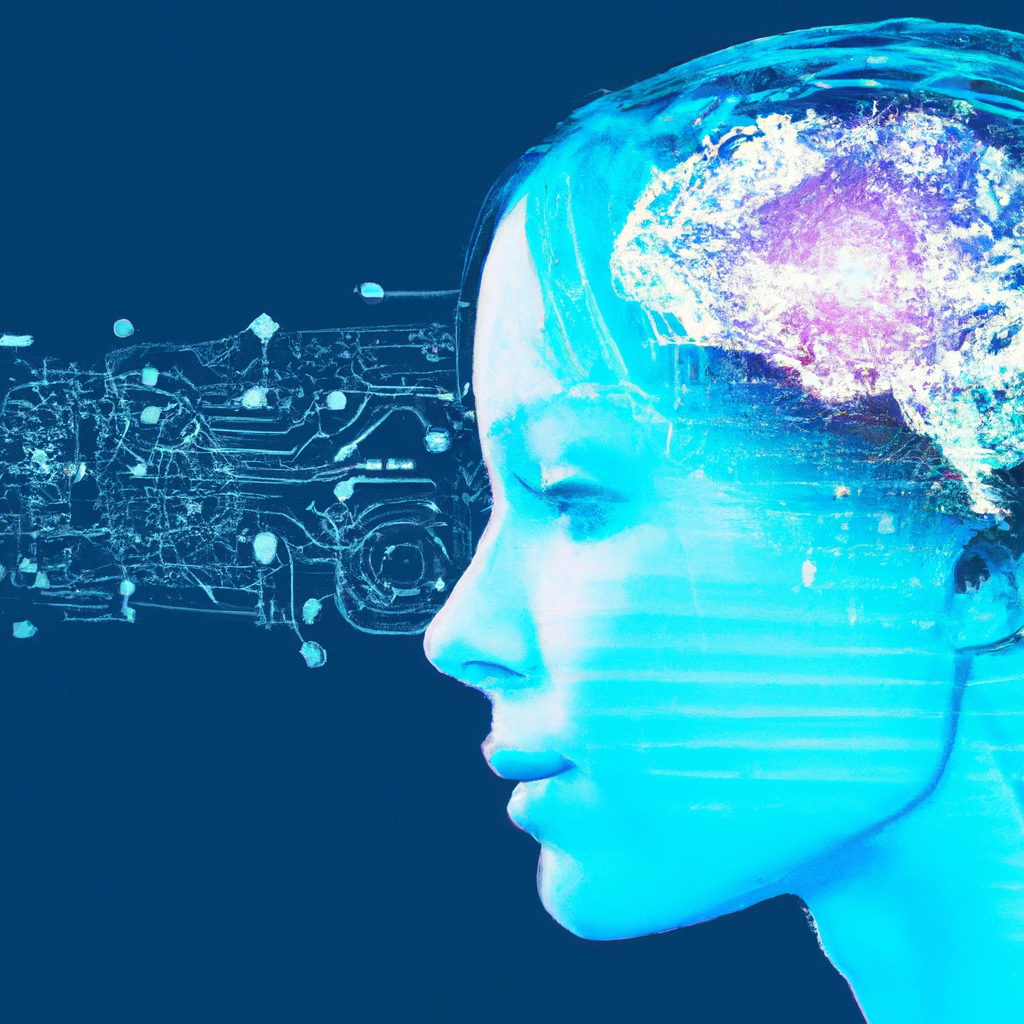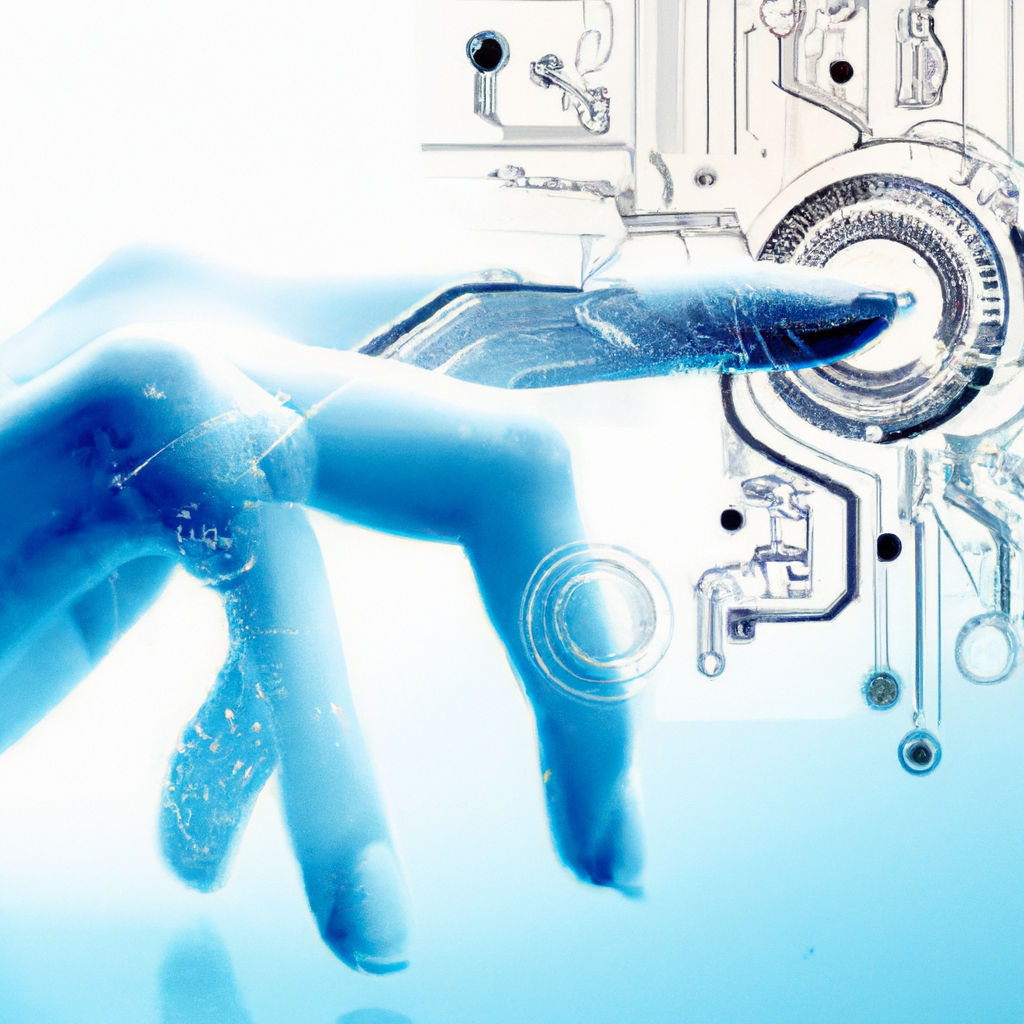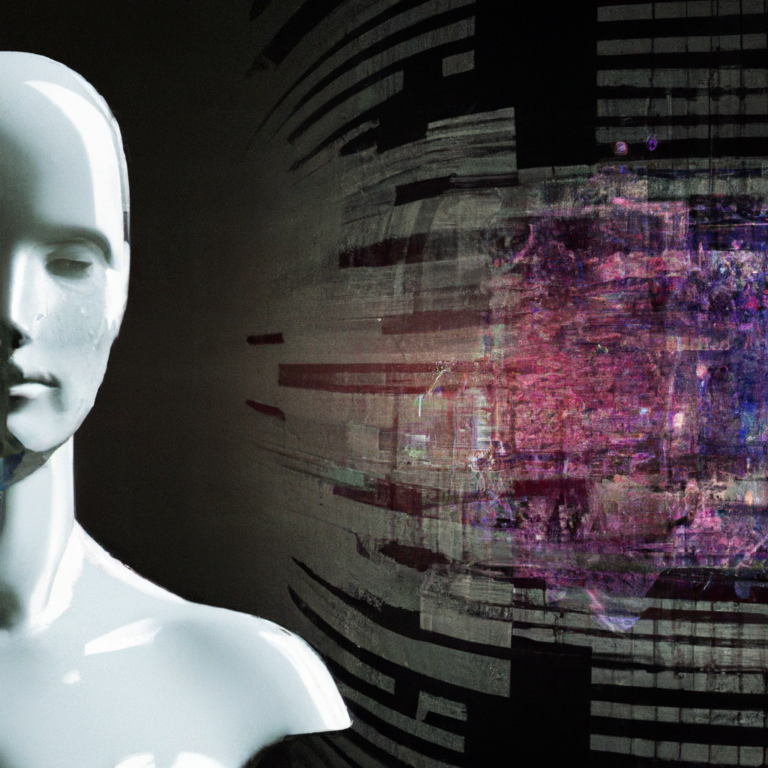How To Use AI To Solve Global Problems

In today’s rapidly advancing world, the potential of artificial intelligence (AI) to tackle global issues is becoming increasingly apparent. From climate change to poverty alleviation, AI has the capability to revolutionize problem-solving on a global scale. By harnessing the power of machine learning, AI can analyze vast amounts of data, identify patterns, and propose innovative solutions, ultimately paving the way for a brighter and more sustainable future for all. In this article, you will discover how AI can be effectively utilized to address pressing global challenges, and how you can play a role in shaping this transformative technology for the benefit of humanity.

Understanding AI
Definition of AI
AI, or Artificial Intelligence, refers to the development of computer systems that can perform tasks that would typically require human intelligence. These tasks include learning, reasoning, problem-solving, and decision-making. AI systems are designed to analyze data, identify patterns, and make predictions or recommendations based on their analysis. They are capable of continuously learning and improving from experience, enabling them to adapt to new situations and tasks.
AI’s role in solving global problems
Artificial Intelligence has emerged as a powerful tool in addressing global problems. With its ability to analyze vast amounts of data and make intelligent predictions, AI has the potential to revolutionize our approach to these challenges. It can help us develop innovative solutions, improve decision-making processes, and enhance the efficiency and effectiveness of problem-solving efforts.
Identifying Global Problems
Overview of global issues
Global problems refer to complex challenges that transcend national boundaries and affect the well-being of people and the planet. These issues include poverty, hunger, disease, climate change, access to education, and natural disasters, among others. Tackling these problems requires collective action and the implementation of sustainable solutions that address the root causes.
Sustainable development goals
To guide global efforts in addressing these challenges, the United Nations has established the Sustainable Development Goals (SDGs). The SDGs encompass 17 goals that aim to end poverty, protect the planet, and ensure prosperity for all. These goals provide a framework for countries, organizations, and individuals to work together in achieving a sustainable future.
Challenges in addressing global problems
Addressing global problems poses several challenges. First, these problems are often interconnected, with one issue exacerbating others. For example, poverty can lead to limited access to education and healthcare, which further perpetuates poverty. Second, resources and expertise are not evenly distributed, making it difficult to allocate them equitably. Finally, the scale and complexity of global problems require innovative approaches and collaboration between various stakeholders.
AI Applications in Solving Global Problems
Impact of AI on healthcare
AI has the potential to transform healthcare by improving diagnosis, treatment, and patient care. AI algorithms can analyze medical images, such as X-rays and MRIs, to detect diseases at an early stage. AI-powered chatbots and virtual assistants can provide personalized healthcare advice and support. Additionally, AI can enhance medical research by analyzing large datasets and identifying patterns that lead to new treatments and therapies.
AI for addressing climate change
Climate change is one of the most pressing global problems we face. AI can play a significant role in mitigating its impact and assisting in sustainable practices. AI algorithms can analyze climate data to predict extreme weather events, helping governments and organizations take preventive measures. Furthermore, AI can optimize energy consumption, enable smart grid systems, and support renewable energy generation, contributing to a more sustainable future.
AI’s role in poverty alleviation
AI can contribute to poverty alleviation by enabling financial inclusion, improving agricultural practices, and enhancing job opportunities. AI-powered financial systems can provide access to banking services in remote areas, allowing people to save, borrow, and invest their money. AI can also assist farmers in maximizing crop yields, reducing waste, and adapting to changing environmental conditions. Additionally, AI can support skills training and job matching, facilitating employment opportunities for those in poverty.
AI for improving education
Access to quality education remains a significant challenge in many parts of the world. AI can address this issue by personalizing learning experiences, creating adaptive learning platforms, and expanding access to education resources. AI algorithms can analyze student performance data and tailor educational content to individual needs and preferences. Virtual reality and augmented reality technologies powered by AI can create immersive learning environments, enriching educational experiences for students regardless of their location.
AI in disaster management
Natural disasters have devastating consequences, causing loss of life, displacements, and infrastructural damage. AI can assist in disaster management by providing early warning systems, optimizing emergency response, and facilitating recovery efforts. AI algorithms can analyze real-time data from various sources, such as sensors and satellite imagery, to detect and predict disasters. Additionally, AI-powered chatbots and drones can support rescue operations, assess damages, and provide situational awareness to aid recovery and reconstruction processes.

Building AI Solutions
Collecting and analyzing data
AI systems rely on data to learn and make informed decisions. Collecting high-quality and diverse datasets is crucial to developing effective AI solutions. Data can be sourced from various channels, such as public databases, IoT devices, social media, and surveys. It is important to ensure the privacy and security of data, as well as adhere to ethical guidelines and legal requirements when collecting and handling data.
Developing AI algorithms
Developing AI algorithms involves designing and training models that can process and understand data. This step includes selecting appropriate machine learning techniques, preprocessing the data, and training the algorithms using labeled examples. The algorithms need to be optimized and validated to ensure their accuracy and reliability. Ongoing monitoring and refinement of AI models are essential to account for changes in data patterns and improve their performance over time.
Ethical considerations in AI
As AI becomes increasingly integrated into our lives, ethical considerations surrounding its development and use are of utmost importance. AI systems must be designed to prioritize human well-being, fairness, and accountability. It is crucial to address issues such as bias in data, transparency in decision-making processes, and the potential impact of AI on employment. Establishing ethical frameworks and regulatory guidelines that govern AI development and deployment is essential to ensure responsible and ethical AI use.
Collaboration and Partnerships
Public-private partnerships
Addressing global problems requires collaboration between governments, businesses, academia, and civil society. Public-private partnerships can bring together expertise, resources, and innovative solutions to tackle these challenges collectively. Governments can provide policy support, funding, and access to data, while businesses and academia can contribute technical expertise, research, and development capabilities.
International cooperation
Global problems are not limited by borders, and therefore international cooperation is crucial in finding sustainable solutions. Collaborative efforts between nations can lead to the sharing of best practices, knowledge exchange, and joint initiatives. International organizations, such as the United Nations and World Bank, play a vital role in facilitating dialogue, coordinating efforts, and mobilizing resources to address global problems collaboratively.
Sharing AI resources and knowledge
To maximize the potential of AI in solving global problems, it is important to promote the sharing of AI resources and knowledge. Open-source platforms and data repositories enable developers, researchers, and organizations to collaborate and build upon existing AI solutions. Sharing best practices, lessons learned, and success stories can accelerate progress and ensure that AI applications are accessible and beneficial to all.
AI Implementation Challenges
Data privacy and security
The use of AI entails the collection and analysis of vast amounts of data, raising concerns about data privacy and security. Safeguarding personal information, ensuring data anonymity, and preventing unauthorized access or misuse are critical considerations. Establishing robust data protection mechanisms, transparency in data handling practices, and compliance with privacy regulations are essential to build trust and confidence in AI systems.
Bias and fairness in AI
AI algorithms are trained on historical data, which may contain biases or reflect societal inequalities. This can result in biased predictions or decisions that perpetuate existing biases and inequalities. Ensuring fairness and mitigating bias in AI algorithms require careful consideration throughout the development process. Regular audits, diversity in training datasets, and algorithmic transparency can help address these concerns and create AI systems that treat all individuals fairly.
Skills gap and workforce development
The rapid advancement of AI technology has created a skills gap, with a shortage of professionals possessing the necessary expertise to develop and implement AI solutions. Bridging this gap requires investing in workforce development, promoting AI education and training programs, and fostering collaboration between academia and industry. Building a diverse and inclusive AI talent pool is crucial to leverage the potential of AI in solving global problems effectively.
Policy and Regulation
Creating AI governance frameworks
The development and deployment of AI should be guided by robust governance frameworks. These frameworks should define ethical principles, ensure transparency, and establish accountability mechanisms. Governments play a significant role in creating and implementing policies that address AI risks, protect human rights, and foster responsible AI development. Collaboration between policymakers, industry leaders, and civil society is essential to develop comprehensive and adaptive AI governance frameworks.
Ethical AI policies
Ethical considerations should be at the forefront of AI policymaking. Policies should encourage the development and use of AI systems that prioritize human well-being, promote fairness, and mitigate risks. Ethical AI policies should address issues such as transparency, accountability, data privacy, bias mitigation, and the impact on employment. Regular review and adaptation of these policies are necessary to keep pace with technological advancements and emerging ethical challenges.
Ensuring responsible AI use
Responsible AI use entails promoting transparency, accountability, and consideration of societal impact. AI systems should be designed to be explainable, allowing users to understand the reasoning behind their decisions. Regular audits and evaluations of AI systems can help identify and address any unintended consequences or risks. Organizations using AI should establish clear guidelines and mechanisms for addressing feedback, complaints, and appeals regarding their AI systems’ use.
AI as a Tool for Decision Making
Using AI to enhance decision-making processes
AI can enhance decision-making processes by providing insights, predictions, and recommendations based on data analysis. AI-powered systems can quickly process vast amounts of information and identify patterns that humans may overlook. By augmenting human decision-making with AI, organizations can make more informed and data-driven choices. However, the ultimate decision-making responsibility still rests with humans, and AI should be seen as a supportive tool rather than a substitute for human judgment.
Potential risks and benefits
Using AI in decision-making processes carries both risks and benefits. The benefits include increased efficiency, improved accuracy, and enhanced productivity. AI can automate repetitive tasks, free up human resources, and enable better resource allocation. However, there are risks, such as reliance on biased or incomplete data, the potential for errors or malfunctions in AI systems, and the ethical implications of automated decision-making. Mitigating these risks requires careful consideration of data quality, algorithmic transparency, and the establishment of human oversight mechanisms.
Human-AI collaboration
The most effective use of AI in decision-making involves collaboration between humans and AI systems. Humans bring their unique skills, intuition, and ethical judgment, while AI provides data analysis, predictions, and recommendations. By combining human expertise with AI capabilities, organizations can leverage the strengths of both to make well-informed decisions. Effective human-AI collaboration requires clear communication, trust, and ongoing human monitoring and intervention to ensure that decisions align with ethical, legal, and societal norms.
Future of AI in Solving Global Problems
Advancements in AI technology
The future of AI holds immense promise in solving global problems. Advancements in AI technology, such as machine learning, natural language processing, and computer vision, are rapidly evolving. These advancements will enable AI systems to become even more powerful in analyzing and understanding complex data, predicting outcomes, and adapting to new challenges. As AI technology continues to advance, its potential to address global problems becomes increasingly significant.
Ethical considerations for future AI development
As AI technology progresses, it is crucial to maintain a strong focus on ethical considerations. Future AI development should prioritize responsible design, ethical decision-making, and respect for human rights. Addressing issues such as bias, transparency, accountability, and privacy becomes more imperative as AI systems become more integrated into our lives. By proactively addressing ethical considerations, we can ensure that future AI technologies benefit society as a whole.
AI’s potential in addressing complex global challenges
The potential of AI to address complex global challenges is vast. From healthcare to climate change, poverty alleviation to education, AI can offer innovative solutions and contribute to sustainable development. As AI technology continues to evolve, its capabilities in analyzing, predicting, and optimizing will empower individuals, organizations, and governments in making informed decisions and implementing effective strategies to solve global problems. By harnessing the full potential of AI, we can create a more equitable, prosperous, and sustainable future for all.
Conclusion
In conclusion, AI has the potential to revolutionize our approach to solving global problems. By leveraging AI’s ability to analyze vast amounts of data, develop innovative solutions, and enhance decision-making processes, we can tackle complex challenges such as healthcare, climate change, poverty, education, and disaster management. However, the responsible and ethical development and use of AI are crucial to ensure its positive impact. Collaboration, partnerships, and international cooperation are essential in harnessing the potential of AI to address global problems effectively. As we look to the future, advancements in AI technology and continued focus on ethical considerations will further enhance AI’s role in tackling complex global challenges and creating a more sustainable world.






